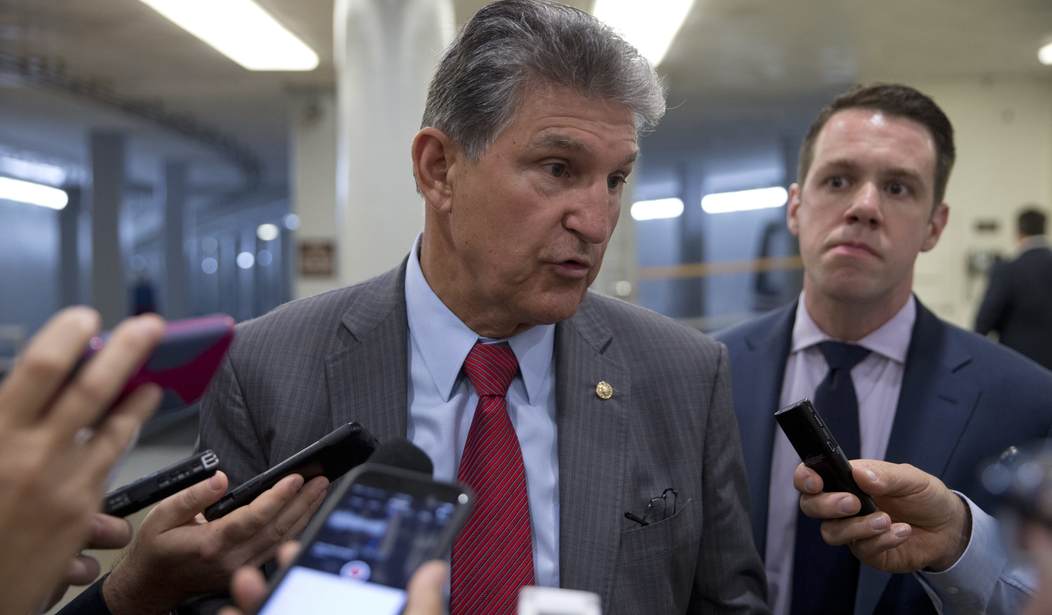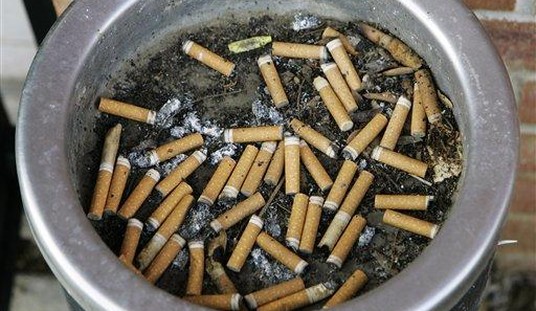WASHINGTON – Sen. Joe Manchin (D-W.Va.) said House Republicans should not have started with Obamacare as the first major issue to tackle in the new Congress, emphasizing that an infrastructure package and curing the opioid addition crisis would get more bipartisan support.
“I’ve told President Trump this, I’ve said you need some wins in the column and the bottom line is infrastructure. I don’t know a Democrat or Republican that doesn’t have an infrastructure problem – that’s some commonality. I don’t know a Democrat or Republican that doesn’t have an addiction or an opioid problem; that’s something we could cure,” Manchin said during the discussion “From the State Capitol to the Senate Floor” at The Atlantic’s recent Renewal Summit in D.C.
“It’s a silent killer. It doesn’t pick Democrats or Republicans or liberals or conservatives so once you find that and get a start – we’ve been so far apart for so long we’ve got to find something that brings us together. Healthcare is not it. We know that, and why they went down that rat hole I have no idea,” he added.
After the American Health Care Act was pulled from consideration in the House, Trump predicted that Obamacare would eventually “implode” and Democrats would come to the table ready to make a deal on healthcare reform. Manchin, former governor of West Virginia, said healthcare is not the issue that is going to bring both parties together.
“Right now I can tell you as Democrats, from me to Bernie Sanders, that’s a pretty wide swath – there’s no way we’re going to vote to repeal, OK? [Obamacare is] not the bill I would have voted for if I was here in 2009, but we’ve got it and it’s done and it’s basically integrated … my hospitals, my rural clinics, all of them would collapse if you take that away, I’ve got too many people,” he said.
“Now, I’ve said this, you can buy a box of Cracker Jacks, open it up and get the prize inside and there will probably be instructions on how to use it. We gave 20 million people healthcare and not one word of instruction on how to use it. So you tell me there’s not some savings there, some efficiency savings,” he added.
Manchin criticized portions of the AHCA and called for the Republicans to focus on repair rather than repeal.
“Then, on the top end, you can’t give $575 million in tax cuts to the people that need it least. And then you have $880 million of cuts where people need more help, and think we’re going to come together on that. So I said quit talking about repeal, talk about repair,” he said. “You tell West Virginians you’re going to repeal something, that means you’re taking it away. You tell them you’re going to repair it, that means you’re going to fix it. You tell me psychologically which one works.”
Sen. John Hoeven (R-N.D.) was asked how he thinks the Senate would have dealt with the AHCA if it had passed in the House along party lines.
“We would have had a lot of work to do on it. For example, take the tax credit. They talked about a refundable tax credit ranging from $2,000 to $4,000; clearly, that needed a lot of work because we would have had to increase that tax credit so you could actually go out and buy a policy and, going to Joe’s point, meaning bringing down where you start phasing out so you could increase that tax credit to a higher level and then have it a function of both income and age. Then maybe start phasing it out at $50,000 and have it phased out at $75,000, increase it so somebody could actually buy a policy – that’s one side,” said Hoeven, a former governor of North Dakota.
“The other side is you’ve got to make the transition from Medicaid expansion work, OK? And so the House was talking about two options – a bloc grant or a per capita bloc grant, but then you’ve got to have some other features to make sure the states can actually transition and the people have access to coverage whether that’s through the Medicaid piece or the refundable tax credit piece. Remember, the key is you’ve got to make sure people have access to health insurance. They have to have that access and that’s the transition,” he added.
During the discussion, Manchin said his state felt like a “war on coal” was declared during the Obama administration.
“I’m an American first. I want my country to do well. I want my president, whoever that president is, to do well and I’m going to do all I can to support and help them. Now, with that being said, if that works well, my state of West Virginia will do just fine and everyone puts this in perspective. Is it all about local politics? Well, politics is local, but they’ve got to understand when I go home I say, listen, I’m going to do what’s great for this country and if the country does what’s great basically back, we’re going to do fine,” Manchin said.
“We got really identified in the last thing and they said, ‘war on coal.’ There was a war we thought was declared because there was no pathway forward. I said, ‘Mr. President Obama, use your taxes and your tax credits if you want to go to renewable in your energy policy.’ Then basically make people that take advantage of the tax credits go back in the areas that lost the jobs in energy and give them a chance. We can build windmills and solar panels. We didn’t get a chance for anything. They left us high and dry and said ‘fend for yourself,’” he added.
Trump has taken steps to roll back Obama’s Clean Power Plan via executive order. Manchin said Obama’s plan was designed to “kill an industry.”
“Basically, the Clean Power Plan jumped in front of the Environmental Protection Agency (EPA), the Corps of Engineers who always did the permitting process, they jumped in front of that and gave it to the OSM, put 200 more regulations on top, which are redundant just to kill an industry. And basically, the industry isn’t going to be dead anywhere else in the world. If we thought we were going to lead the way, basically, we’re not even making our allies or our trading partners use the technology we’ve perfected,” he said.
Hoeven added to Manchin’s point.
“There’s a difference between something being technically viable or technologically viable and commercially viable, so we’ve got to make these things commercially viable so the industry can implement them and other countries around the world will adopt that technology,” he said. “That’s how you really get to this kind of environmental stewardship.”









Join the conversation as a VIP Member